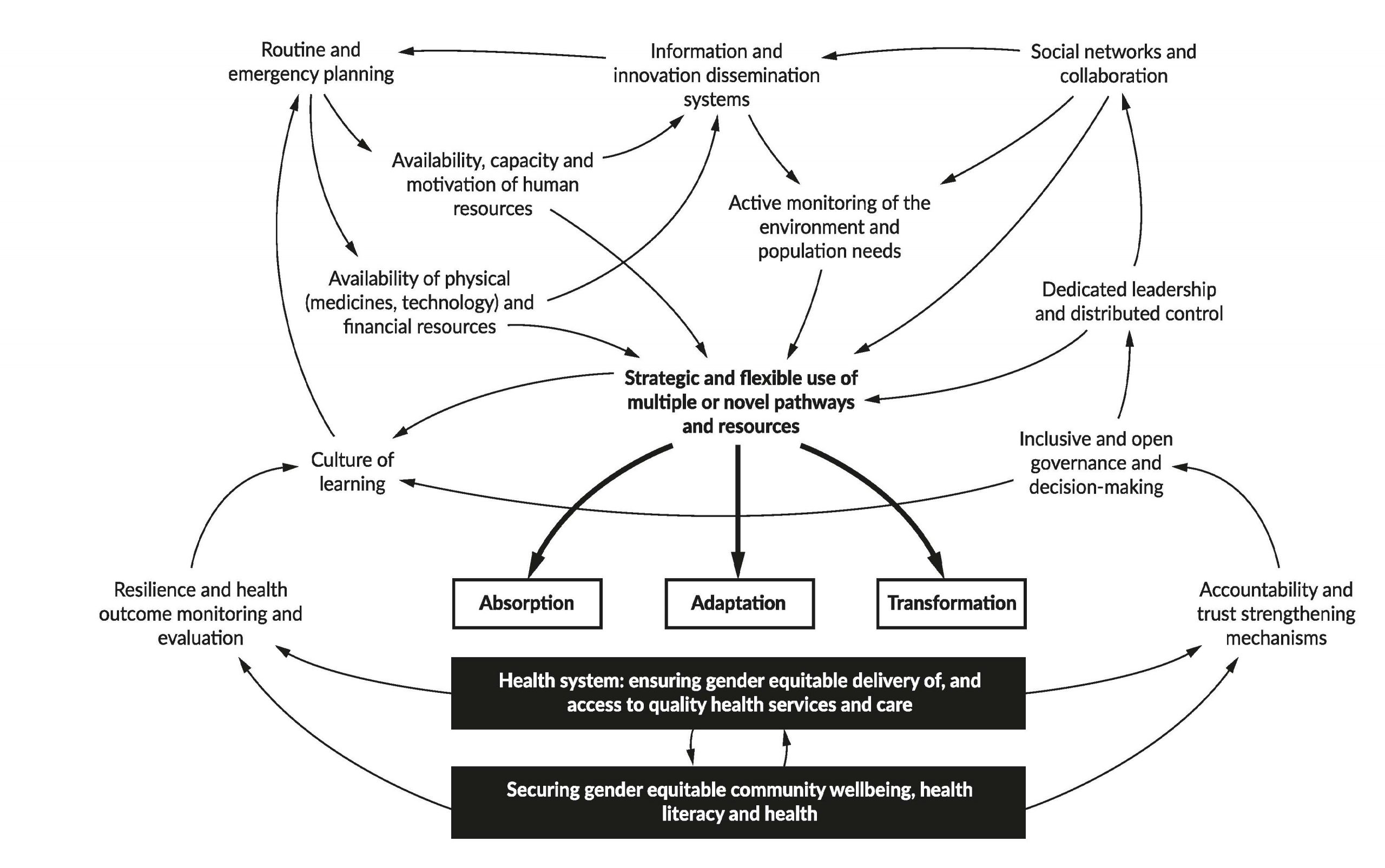
Health systems resilience in fragile and shock-prone settings through the prism of gender, equity and justice: implications for research, policy and practice
Download this Conflict and Health paper here. [opens new tab]
Fragile and shock-prone settings (FASP) present a critical development challenge, eroding efforts to build healthy, sustainable and equitable societies. Power relations and inequities experienced by people because of social markers, eg gender, age, education, ethnicity, and race, intersect leading to poverty and associated health challenges. Concurrent to the growing body of literature exploring the impact of these intersecting axes of inequity in FASP settings, there is a need to identify actions promoting gender, equity and justice. Gender norms that emphasise toxic masculinity, patriarchy, societal control over women, and a lack of justice are unfortunately common throughout the world and are exacerbated in FASP settings. It is critical that health policies in FASP settings consider gender, equity and justice and include strategies that promote progressive changes in power relationships.
ReBUILD for Resilience focuses on health systems resilience in FASP settings and is underpinned by a conceptual framework that is grounded in a broader view of health systems as complex adaptive systems (more on the framework and its components here). The framework identifies links between different capacities and enables identification of feedback loops which can drive or inhibit the emergence and implementation of resilient approaches. We applied the framework to four different country case studies (Lebanon, Myanmar, Nepal and Sierra Leone) to illustrate how it can be inclusive of gender, equity and justice concerns, to inform future research and support context responsive recommendations to build equitable and inclusive health systems in FASP settings.
Download this Conflict and Health paper here. [opens new tab]
Further information
A poster on this work was presented at HSR2022 in Bogota, Colombia. Read it here.
Authors
Wesam Mansour 1*, Abriti Arjyal 2, Chad Hughes 3, Emma Tiange Gbaoh 4, Fouad Mohamed Fouad 5, Haja Wurie 4, Hnin Kalayar Kyaw 6, Julie Tartaggia 3, Kate Hawkins 7, Kyu Kyu Than 6, Lansana Hassim Kallon 4, Maya Abou Saad 5, Obindra Chand 2, Phone Myint Win 6, Rouham Yamout 5, Shophika Regmi 2, Sushil Baral 2, Sally Theobald 1 and Joanna Raven 1
1 Department of International Public Health, Liverpool School of Tropical Medicine, Liverpool, UK
2 HERD International, Kathmandu, Nepal
3 Burnet Institute, Melbourne, Australia
4 College of Medicine and Allied Health Sciences, University of Sierra Leone, Freetown, Sierra Leone
5 Faculty of Health and Sciences, American University in Beirut, Beirut, Lebanon
6 Burnet Institute, Yangon, Myanmar
7 Pamoja Communications Ltd, Brighton, UK
Image: ReBUILD for Resilience’s resilience framework